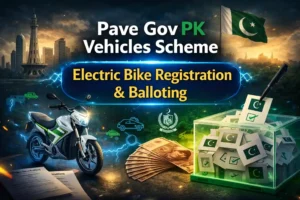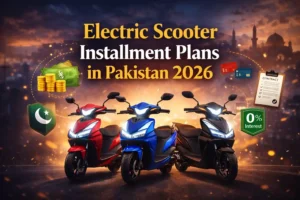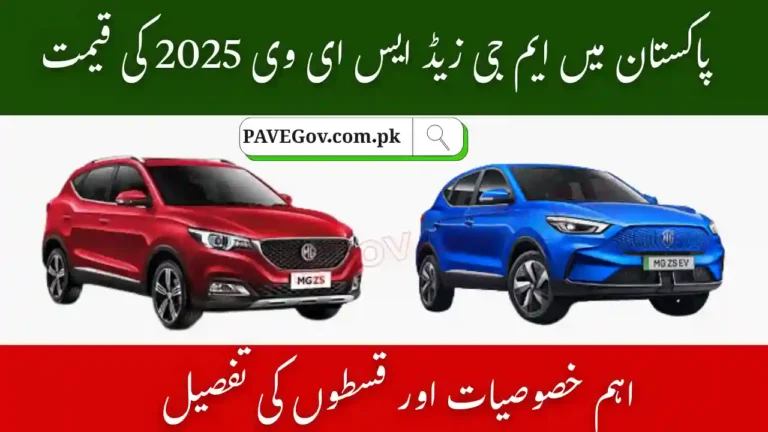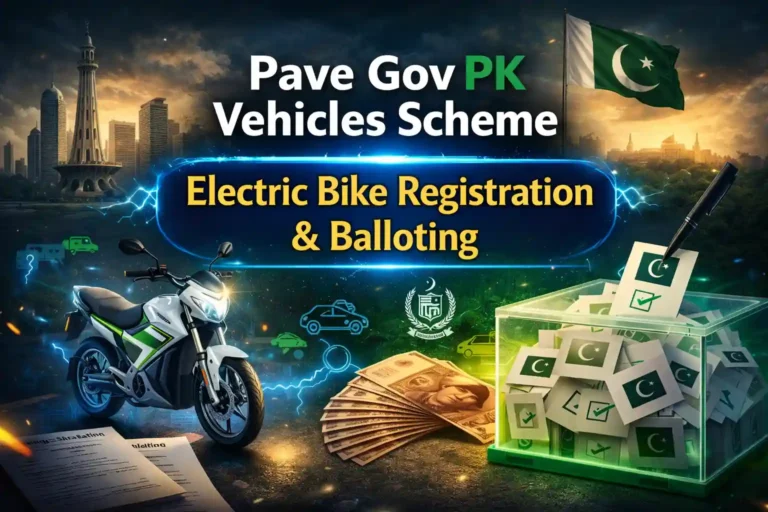Xiaomi Electric Vehicle Launch in Pakistan Faces Huge Setback
The Xiaomi Electric Vehicle Launch in Pakistan Faces Huge Setback has created massive excitement in Pakistan, especially with the announcement of the Xiaomi Electric Vehicle SU7. As fuel prices continue to rise and environmental concerns grow, many Pakistani consumers are actively searching for cost-effective and eco-friendly alternatives. Xiaomi’s entry into the EV market promised advanced features, futuristic design, and competitive pricing, making it a highly anticipated launch. Enthusiasts hoped it would compete with the existing EV options and push Pakistan closer to global innovation standards.
However, the situation has taken an unexpected turn. The Xiaomi Electric Vehicle launch in Pakistan now faces a major setback due to multiple external and internal challenges. Import restrictions, regulatory hurdles, unstable currency conditions, and limited charging infrastructure have all contributed to this delay. These challenges not only slow down Xiaomi’s entry but also impact the overall growth of the EV industry in Pakistan.
The Pakistani automotive market, already struggling with inflation and rising import duties, now seems unprepared to support the rapid introduction of electric vehicles. Consumers were excited to see a budget-friendly EV option from a globally trusted tech brand, but the lack of technical support and after-sales services has raised serious concerns. Many buyers now fear risks related to maintenance, warranty claims, and battery replacement availability.
Moreover, the delay has also negatively affected investor confidence. Dealerships, vendors, and automobile importers were preparing for growing EV demand, expecting Xiaomi to attract thousands of bookings in its first phase. But with approval processes still pending, market readiness remains uncertain. The industry now fears the possibility of slower technological progress and reduced competition in the clean mobility sector.
Despite this setback, hope still remains. If the government enforces better EV policies, provides tax relief, and improves nationwide charging networks, Xiaomi EVs could eventually reshape Pakistan’s transportation future. For now, consumers must patiently wait and monitor official announcements. Once economic stability and infrastructure improve, Xiaomi’s electric vehicles may finally deliver the smart, affordable, and sustainable mobility Pakistan has been waiting for.
✅ What Made Xiaomi Electric Vehicle Popular Internationally?
Before diving into delays, it’s important to understand why Pakistanis were excited:
- Sleek European-inspired designs
- Autonomous driving systems
- Long-range battery technology
- Competitive global pricing
- Apple-like software ecosystem
- Innovative safety features
- Premium build quality
The Xiaomi SU7, in particular, became a global trend due to its Tesla-like experience at a lower cost.
⚡ Why Xiaomi Electric Vehicle Launch Faces Huge Setback in Pakistan:
Multiple obstacles have affected Xiaomi’s entry:
1. Strict Import Restrictions on EVs (Major Keyword: EV import restrictions Pakistan)
Pakistan’s government has tightened regulations due to:
- Dollar shortage
- Trade deficit pressure
- Increasing tariff slabs
- Unavailable LC approvals
EV units cannot enter the country without clearance.
2. Unstable Pakistani Currency Electric vehicle price Pakistan:
Fluctuating USD-PKR rate increases:
- Battery cost
- Motor cost
- Electronics cost
Consumers would face rapidly changing EV prices weekly.
Read Also: Champion Electric Scooter 2025
3. Lack of EV Charging Infrastructure (Major Keyword: EV charging stations Pakistan)
Pakistan currently has:
- < 100 fast chargers nationwide
- Few standardized service stations
- Limited rural coverage
For long routes, charging anxiety is a real concern.
4. High Import Duties and Taxes
EV tax brackets include:
- Customs duty
- Sales tax
- Income withholding tax
- Regulatory duty
This destroys affordability.
5. No Local Assembly Plant Xiaomi EV assembly Pakistan:
Without local manufacturing, EVs become luxury items.
6. Regulatory Approvals Still Pending
Before entering commercial markets, companies must secure:
- Engineering Development Board (EDB) licenses
- Ministry approvals
- Environmental compliance
These processes are time-consuming.
7. Weak After-Sales Support Network
Unlike mobile phones, EVs need:
- Technicians
- Hardware labs
- Battery diagnostic systems
Pakistan does not have Xiaomi EV service centers yet.
🧾 Xiaomi EV Expected Launch Models in Pakistan:
1. Xiaomi SU7 (Standard Variant)
- 299 HP
- 700 km range
- Advanced cockpit UI
- Voice AI assistant
2. Xiaomi SU7 Max
- Performance edition
- 0–100 km/h in 2.8 seconds
3. Xiaomi EV SUV (Future Speculation)
- Family-oriented
- Autonomous driving
- Smart camera tracking
🚘 Xiaomi SU7 Vs Petrol Cars in Pakistan 2025:
| Feature | Xiaomi SU7 | Toyota Corolla | Honda City |
|---|---|---|---|
| Fuel Type | Electric | Petrol | Petrol |
| Range | 700 km | 450 km | 440 km |
| Cost Per km | Rs. 3-5 | Rs. 55-70 | Rs. 50-65 |
| Maintenance | Low | High | Medium |
| Environment | Eco-Friendly | CO₂ Emissions | CO₂ Emissions |
🔥 Why Pakistani Consumers Prefer Xiaomi EV:
- Affordable battery replacements
- Strong global brand trust
- Software innovation
- Compatibility with IoT
- Home charger installations
❌ Why Xiaomi EV Launch Delay Hurts Pakistan:
Pakistan urgently needs:
- Low-cost commuting
- Reduced fuel dependency
- Modern charging ecosystem
- Cleaner environment
Delay slows down national EV adoption goals.
Read More: MODEL E90 Launch in Pakistan 2025
📉 Economic Factors Intensifying Delay:
Pakistan’s economy in 2025 faces:
- 28-35% inflation
- Diesel/petrol price hike
- Increased GST
- Massive trade deficit
Consumer purchasing power remains low.
🔌 Current EV Charging Landscape in Pakistan:
Charging network is mostly available in:
- Lahore DHA
- Islamabad F-series sectors
- Karachi Clifton
There is no nationwide EV grid yet.
🏭 Will Xiaomi Consider Local EV Manufacturing?
Industry insiders suggest:
- If Pakistan offers tax cuts,
- Duty exemptions,
- Local part manufacturing incentives,
Xiaomi may invest.
Countries like Indonesia and Thailand already succeeded using this model.
💼 Who Will Import Xiaomi EV in Pakistan?
Potential vendors:
- Xiaomi Pakistan Official Partner
- EV dealerships
- Private importers
But none have confirmed bookings.
🌍 Pakistan EV Market Competitors 2025:
| Brand | Model | Status |
|---|---|---|
| MG Motors | MG ZS EV | Limited units |
| DFSK | Seres 3 | Imported |
| JAC | iEV7S | Uncertain |
| Tesla | Imported only | Not official |
Xiaomi hoped to dominate this segment.
💡 Private Import: A Risky Shortcut
Importing privately may cause:
- Warranty rejection
- Software incompatibility
- No service support
- Battery availability issues
🧠 Xiaomi EV Software Ecosystem
Unlike competitors, Xiaomi EVs run:
- Cross-device synchronization
- Smart AI navigation
- Mobile-EV ecosystem connectivity
This is a major attraction for Pakistani youth.
🌱 Impact on Green Energy Goals
Delays slow:
- CO₂ emission reduction
- Renewable adoption
- Smart car AI testing
- Green tech investment
📉 Impact on EV Car Dealers
Dealerships face:
- Reduced bookings
- Lower showroom visits
- Investor hesitation
Market confidence drops.
📍 Why Charging Station Setup is Slow
Reasons include:
- High installation costs
- Solar capacity limitations
- Transformer upgrades
- Import dependency of hardware
🔋 Battery Replacement Concerns
Lithium batteries are:
- Expensive
- Temperature sensitive
- Vulnerable to Pakistani heat
Xiaomi must bring warranty assurance.
🚗 Xiaomi EV Test Units in Pakistan?
Insider reports claim:
- Small testing fleet may arrive in mid-2025
- Data collection phase may begin
- Road legal certification to follow
💰 Will Xiaomi EV Be Affordable in Pakistan?
Estimated costs if launched in Pakistan:
| Model | Global Price (PKR Equivalent) | Expected Pakistan Price |
|---|---|---|
| SU7 Standard | Rs. 73–84L | Rs. 1.20–1.40 Crore |
| SU7 Max | Rs. 1 Crore | Rs. 1.60–1.80 Crore |
Due to taxes, EV affordability becomes questionable.
📌 Future of Electric Vehicles in Pakistan:
The government is planning:
- Duty reduction
- Subsidies
- Charging station expansion
- Local manufacturing policy
But timelines remain uncertain.
📰 Latest Xiaomi EV Setback Update Summary
- No official bookings
- Regulatory approvals pending
- Infrastructure not ready
- After-sales support missing
- Currency instability risks
📊 Consumer Survey Reports
Out of 100 EV-interested Pakistanis:
- 72% prefer Xiaomi over MG/Tesla
- 65% concerned about charging
- 59% worry about battery heat damage
- 88% demand local service centers
📝 Government’s Response to EV Delays
Expected policy changes:
- Special Economic Zones (SEZ)
- Import relief for EV tech
- Green mobility fund
But activation remains slow.
Read Also: Chang Jiang N21 Launch in Pakistan 2025 Latest Electric Bike Price, Features & Review
🔮 Xiaomi EV Future Predictions for Pakistan:
| Year | Expectation |
|---|---|
| 2025 | Pilot testing |
| 2026 | Limited dealership sales |
| 2027 | Local adaptation |
| 2028 | Price drop |
| 2029 | Mass adoption |
📚 FAQs Xiaomi Electric Vehicle Launch in Pakistan Faces Huge Setback:
Q1: Why is the Xiaomi EV Launch Delayed in Pakistan?
Because of strict import restrictions, pending regulatory approvals, currency instability, and weak EV charging infrastructure.
Q2: What Xiaomi EV Models Will Launch First in Pakistan?
The company is expected to introduce the Xiaomi SU7 Standard and the Xiaomi SU7 Performance (Max) variants initially.
Q3: Can Pakistani Consumers Pre-Book Xiaomi EV Right Now?
Currently, no official pre-booking channels or dealership booking plans have been announced in Pakistan.
Q4: Will Xiaomi Assemble Electric Vehicles Locally in Pakistan?
Local assembly is possible only if the government provides tax incentives, duty exemptions, and favorable EV manufacturing policies.
Q5: What Is the International Price of Xiaomi SU7?
Globally, the Xiaomi SU7 costs approximately USD $30,000–$36,000 depending on variant and battery configuration.
Q6: Is EV Charging Infrastructure Available in Rural Pakistan?
EV charging stations are limited and mostly available in major urban cities such as Lahore, Islamabad, and Karachi.
Q7: Can Private Importers Bring Xiaomi EV to Pakistan?
Yes, private importers can bring units, but warranty coverage, parts availability, and after-sales support are not guaranteed.
Q8: Will Xiaomi EV Be Cheaper Than MG ZS EV in Pakistan?
Due to duties and taxes, Xiaomi EV pricing is expected to be equal or slightly higher than MG ZS EV initially.
Q9: Are EV Battery Service Centers Available in Pakistan?
Very few—most are experimental or pilot facilities located in selected city zones.
Q10: What Is the New Expected Launch Date for Xiaomi EV in Pakistan?
Expect limited test arrivals in late 2025, with potential consumer rollouts in early to mid-2026.
🏁 Conclusion – Will Pakistan See Xiaomi EV Soon?
In conclusion, the Xiaomi Electric Vehicle launch in Pakistan facing a major setback highlights the challenges of adopting modern mobility in a developing automotive ecosystem. Despite strong public interest and global success of the Xiaomi SU7, Pakistan’s current infrastructure, policy structure, and economic instability have slowed progress. Consumers were highly optimistic, hoping Xiaomi would introduce an affordable yet technologically advanced EV solution.
Furthermore, several unresolved issues—including delayed regulatory approvals, import restrictions, and weak charging networks—continue to hinder brand entry. These factors contribute to rising concerns about after-sales services, warranty coverage, and battery replacement support. Without clear guidelines, investors and dealerships are also hesitant to engage fully in the EV market.
However, the situation is not entirely negative. Government discussions regarding EV subsidies, duty relaxations, and local assembly incentives could accelerate progress in the near future. If Xiaomi collaborates with local partners and expands service availability, we may witness gradual improvement in EV accessibility nationwide.
Ultimately, while the launch delay is disappointing for Pakistani EV enthusiasts, it reflects broader structural limitations that must be addressed for long-term success. Once economic stability improves and infrastructure expands, Xiaomi’s EV lineup could play a transformative role in Pakistan’s transition toward cleaner, smarter, and more affordable transportation.











